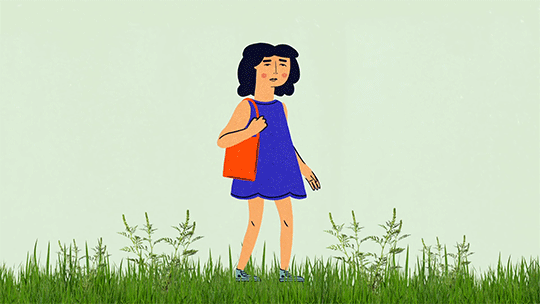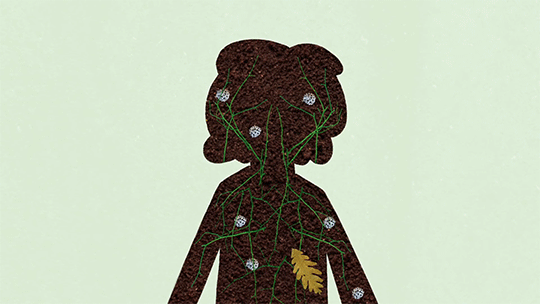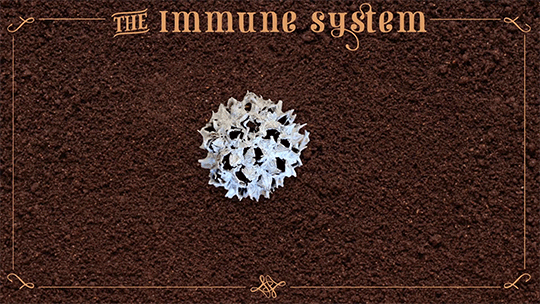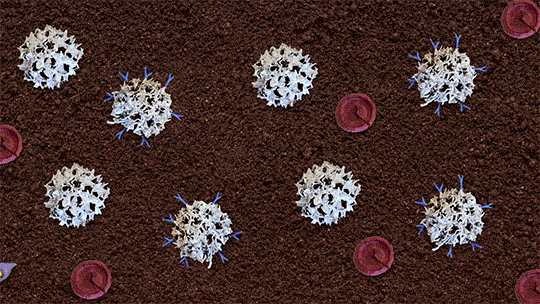Why do people get allergies?
By Lisa LaBracio on April 6, 2017 in TED-Ed Lessons

Anyone with an allergy has their origin story, a tale of how they discovered that their immune system goes haywire when some arbitrarily particular molecule gets into their body. There are hundreds of millions of these stories. In the US alone, an estimated 18 million people suffer from hay fever, and food allergies affect millions of American children. The prevalence of allergies in many other countries is rising. The list of allergens includes — but is not limited to — latex, gold, pollen (ragweed, cockleweed and pigweed are especially bad), penicillin, insect venom, peanuts, papayas, jellyfish stings, perfume, eggs, the feces of house mites, pecans, salmon, beef and nickel.
Once these substances trigger an allergy, the symptoms can run the gamut from annoying to deadly. Hives appear, lips swell. Hay fever brings sniffles and stinging eyes; allergies to food can cause vomiting and diarrhea. For an unlucky minority, allergies can trigger a potentially fatal whole-body reaction known as anaphylactic shock.

Allergies usually, but not always, show up for the first time during childhood. But why do some people get allergies and others don’t? Allergies tend to run in families, so genetics may be one culprit. In fact, errors in a gene that helps regulate the immune system are associated with higher rates of allergies. The environment you grow up in matters, too. Being exposed to an allergen as a baby makes you less likely to actually develop an allergy to it. People who grow up on farms, in big families, and in the developing world also tend to have fewer allergies, although there are plenty of exceptions, partly thanks to genetics. The idea is that as children, they encounter more of the microbes and parasites that co-evolved with traditional hunter-gatherer societies, and that an immune system toughened up by a barrage of pathogens is less likely to overreact to allergens.

For allergy sufferers, the current treatment options are limited: antihistamines can stop the inflammation response, steroids can help dial down the immune system, and EpiPens can save lives. A more permanent option is immunotherapy. Deliberate, controlled exposure to gradually increasing amounts of an allergen can teach the immune system that it isn’t dangerous after all.
There might be more effective treatments if scientists understood allergies, but a maddening web of causes underlies allergic reactions. Cells are aroused, chemicals released, signals relayed. Scientists have only partially mapped the process. And there’s an even bigger mystery underlying this biochemical web: why do people get allergies at all?

The hygiene hypothesis proposes that our immune system overreacts to harmless substances because there aren’t enough harmful ones around to train it to discriminate. But the question remains of why some things (pollen, a bee sting) are much more likely than others (peas, a mosquito bite) to cause a severe allergic reaction. One theory is that allergens have certain proteins that resemble those found on parasitic worms (ironically, the very same type of creature that can be used to treat allergies.) When our immune system recognizes a parasitic worm, it produces the same type of antibodies that respond to allergens—antibodies which are actually fairly unusual. However, a competing theory suggests that these “harmless” substances actually aren’t: that we respond to allergens not because they remind our immune systems of parasitic worms, but because they actually physically damage our cells, shredding them to pieces. In this model, allergies are the first line of defense against toxic molecules, which our ancestors likely encountered in their environment much more often than we do today. For a longer discussion of these two theories, read this article. For more information about seasonal allergies, watch this TED-Ed Lesson.
Image credits: TED-Ed. Author bios: Eleanor Nelsen is a TED-Ed Educator. Carl Zimmer is a science writer for Mosaic, where you can read a much longer version of this article. To learn something new every week, sign up here for the TED-Ed Newsletter.
Tags: Allergies, Hygiene Hypothesis, Science